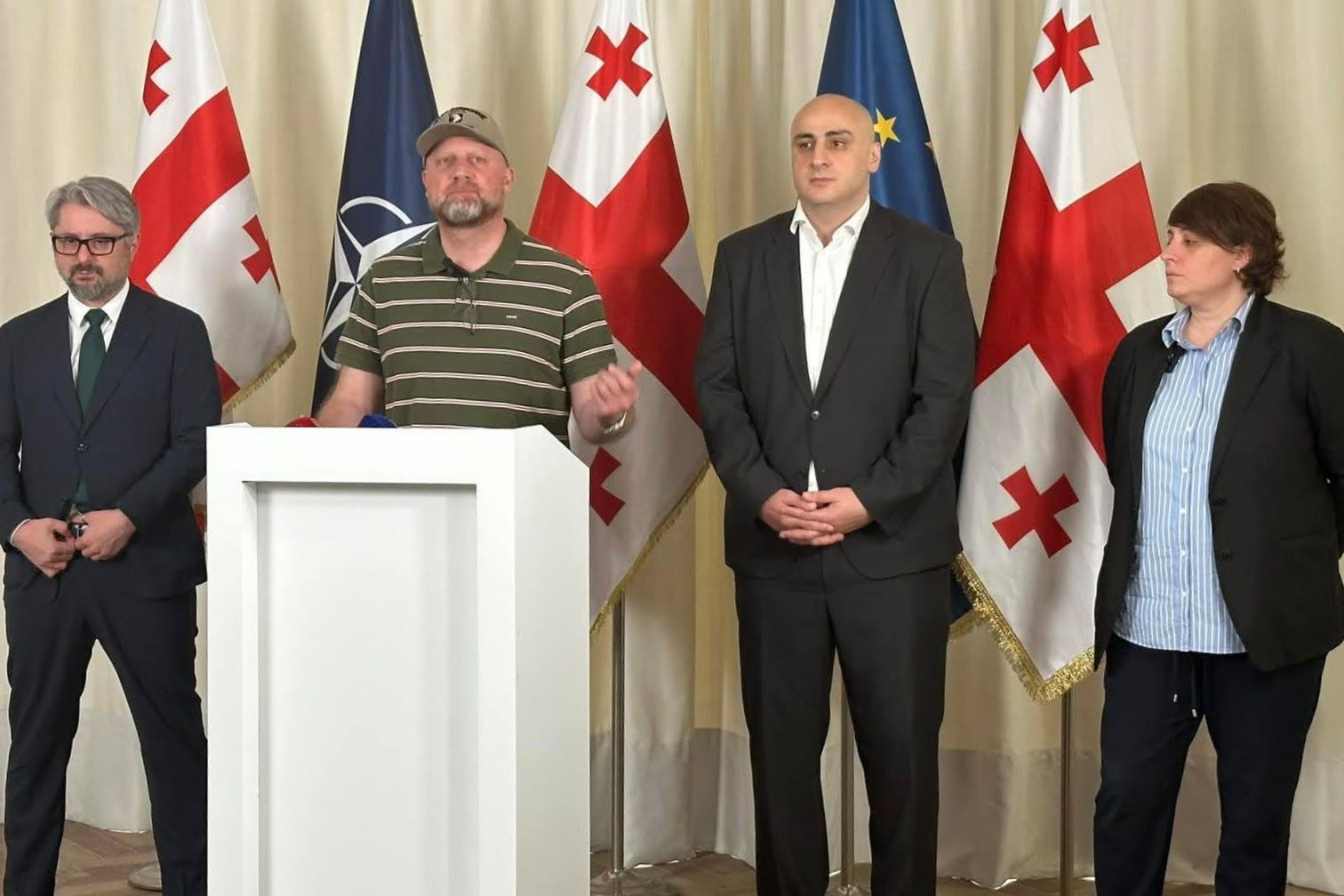Georgian opposition leader Nika Melia attacked during campaign event

Georgian opposition leader Nika Melia was punched while giving an interview to media in western Georgia, with his attacker presumably remaining at large.
Melia was attacked on Sunday as he was campaigning for October’s parliamentary elections in the western Georgian town of Samtredia.
Melia is the co-chair of the opposition party Ahali and a member of Coalition for Change, together with the Droa, and Girchi — More Freedom parties.
Footage of the incident shows the attacker punching Melia, who is then seen walking out of frame as the crowd attempts to separate the two. The attacker immediately fled the scene after the brief scuffle.
Despite footage from the incident clearly showing the attacker’s face, the authorities have yet to confirm whether he had been apprehended. Ana Mirianashvili, an Interior Ministry spokesperson, told OC Media that the the ministry was investigating the incident as a criminal act of violence.
On Monday, Georgian Prime Minister Irakli Kobakhidze called the incident ‘unacceptable’.
‘It is fundamentally important that the elections are held in a peaceful atmosphere’, he said, calling on everybody to ‘refrain’ from such acts.
Despite Kobakhidze’s remarks, critics have repeatedly accused the ruling Georgian Dream party of encouraging attacks on their opponents.
In late January, Parliamentary Speaker Shalva Papuashvili was criticised for inciting violence against opposition figures in a scripted speech in which he said ‘no matter what town, village, or neighbourhood they [the opposition leaders] visit, would it be surprising if they were held accountable for sacrificing people to war, destruction, and death?’.
Papuashvili did not immediately clarify whether he ruled out violence as a reaction to visits made by opposition figures to local communities.
Several government critics, politicians, activists, and journalists have also reported being harassed or attacked in ambushes they believe to be orchestrated by the government. Georgian law enforcement agencies have so far failed to identify and hold accountable any those responsible for the attacks.
[Read more: Beatings, harassment, and no arrests: Georgian Government critics under attack]
‘Tactics of an outgoing regime’
On Monday, Melia attributed the attack to the ruling party, calling it an act typical of an ‘outgoing regime’.
‘All outgoing regimes act this way, and [Georgian Dream founder Bidzina] Ivanishvili’s regime is no exception’, he stated.
The Coalition for Change also swiftly condemned the attack, describing it as a ‘sneaky and cowardly’ act. They asserted that it would not prevent the ruling Georgian Dream party from facing defeat in the upcoming 26 October elections.
The coalition noted that the attack on Melia coincided with the visit by a US Congressional delegation to Georgia.

‘It is particularly significant that this government-orchestrated criminal attack coincided with the visit of our partners, the US delegation to Georgia. The press conference summarising this visit delivered the harshest verdict against Georgian Dream, underscoring the incompatibility of Ivanishvili with the civilised world’, read the coalition’s statement.
‘We are concerned about the upcoming elections. We want to see that those elections are free and fair’, US Senator Jeanne Shaheen said at the conference held together with Congressperson Mike Turner on Sunday, shortly after meeting with Kobakhidze.
‘In our meeting, there was no evidence of an effort to reset the [US–Georgia] relationship’, Turner noted.
Senator Shaheen also called Georgian Dream founder Bidzina Ivanishvili’s refusal to meet them ‘disappointing’.
Ivanishvili, the billionaire former prime minister and honorary chair of the ruling party, also refused to meet with US Assistant Secretary of State James O’Brien during his visit to Tbilisi in May. Both O’Brien and Ivanishvili’s party later explained that his refusal was motivated by his belief that he was under ‘de facto US sanctions’, an allegation O’Brien denied.









